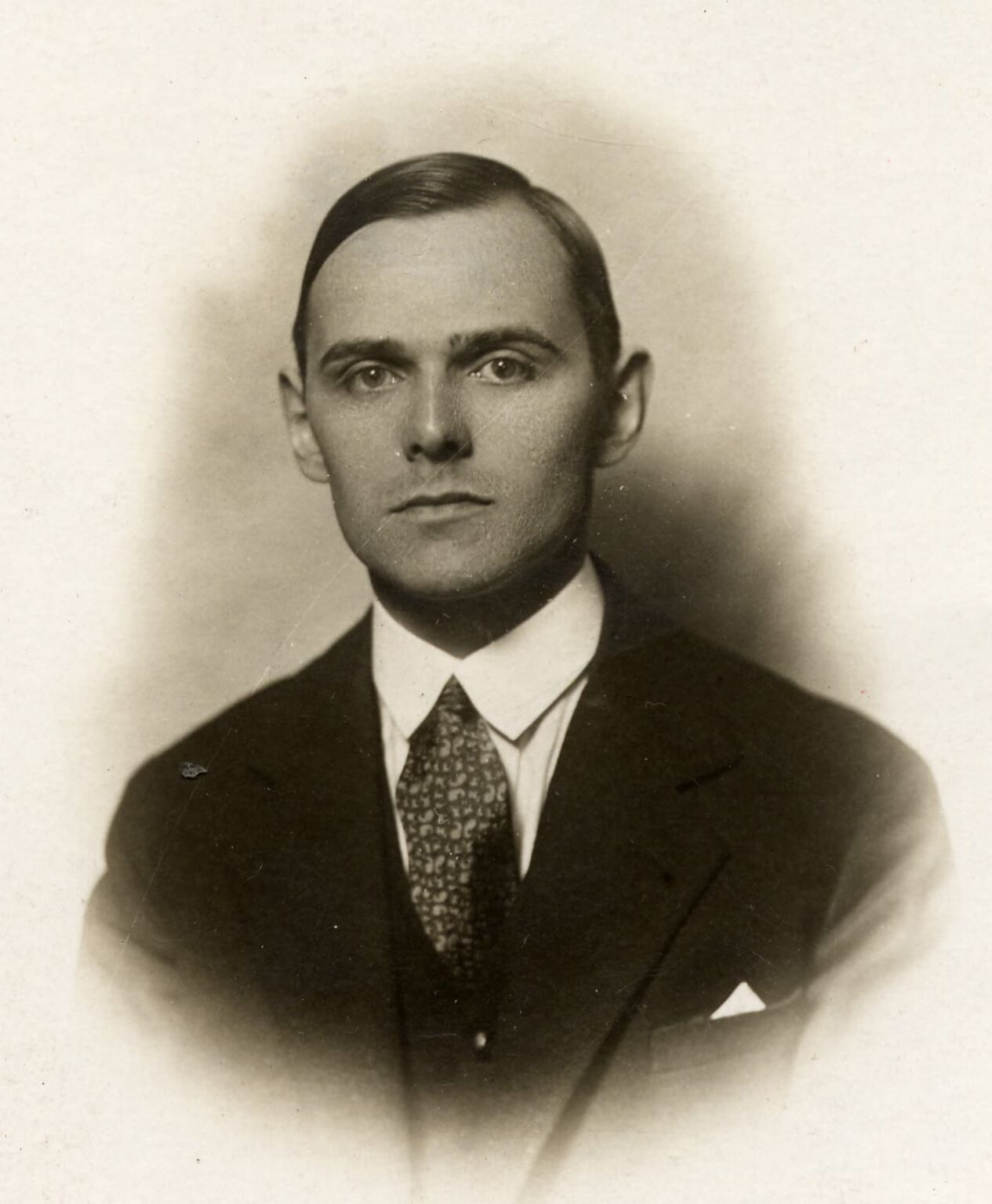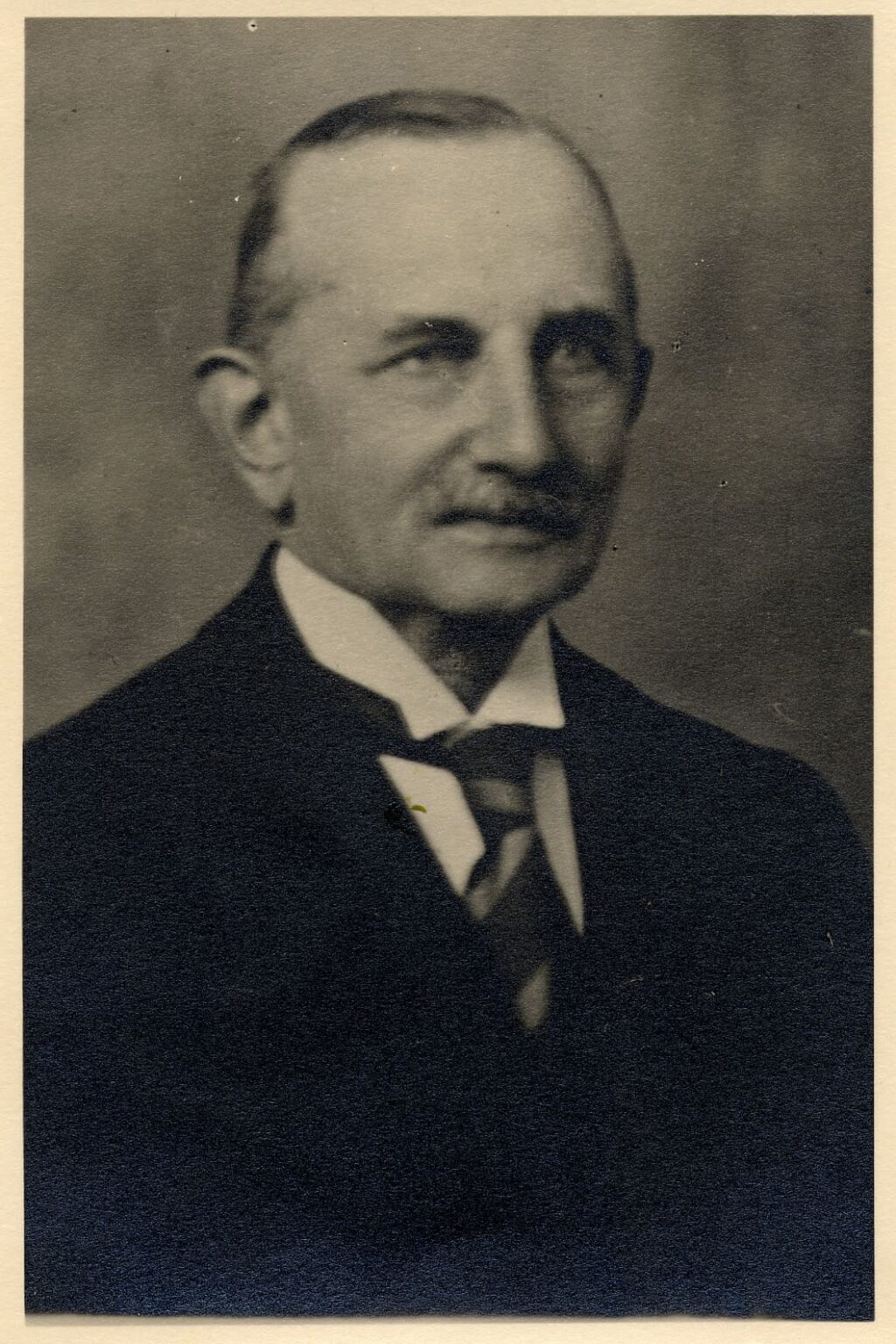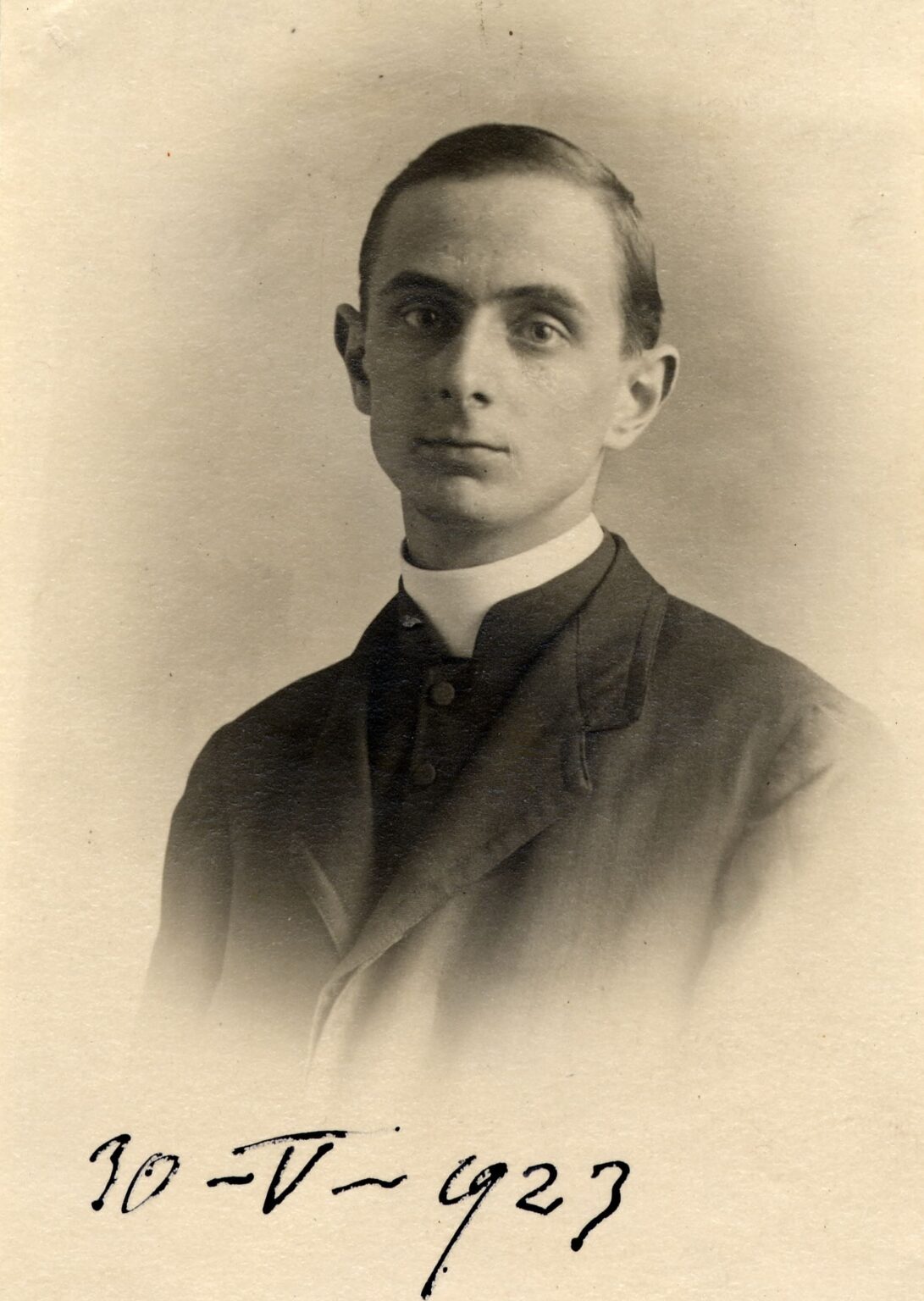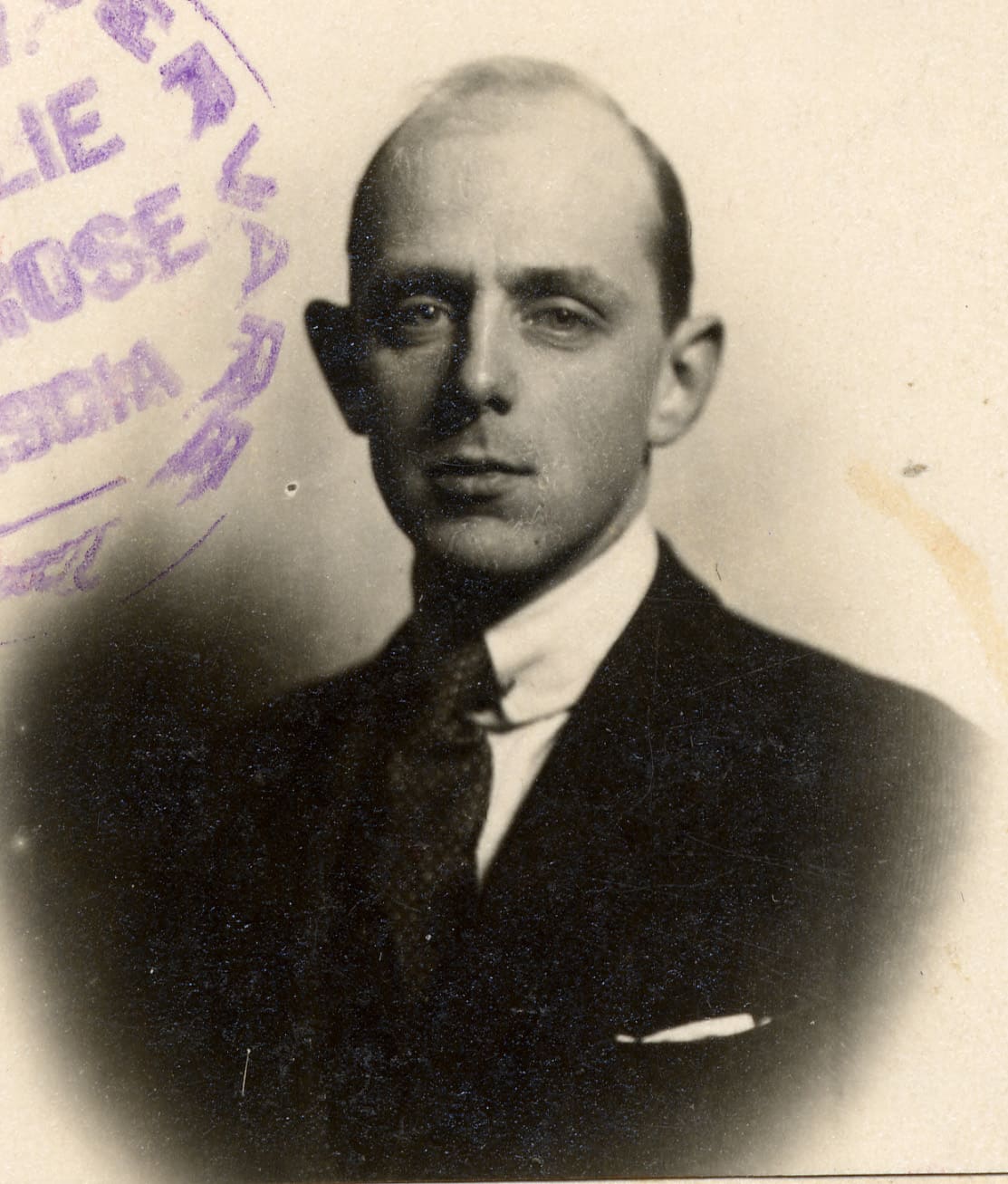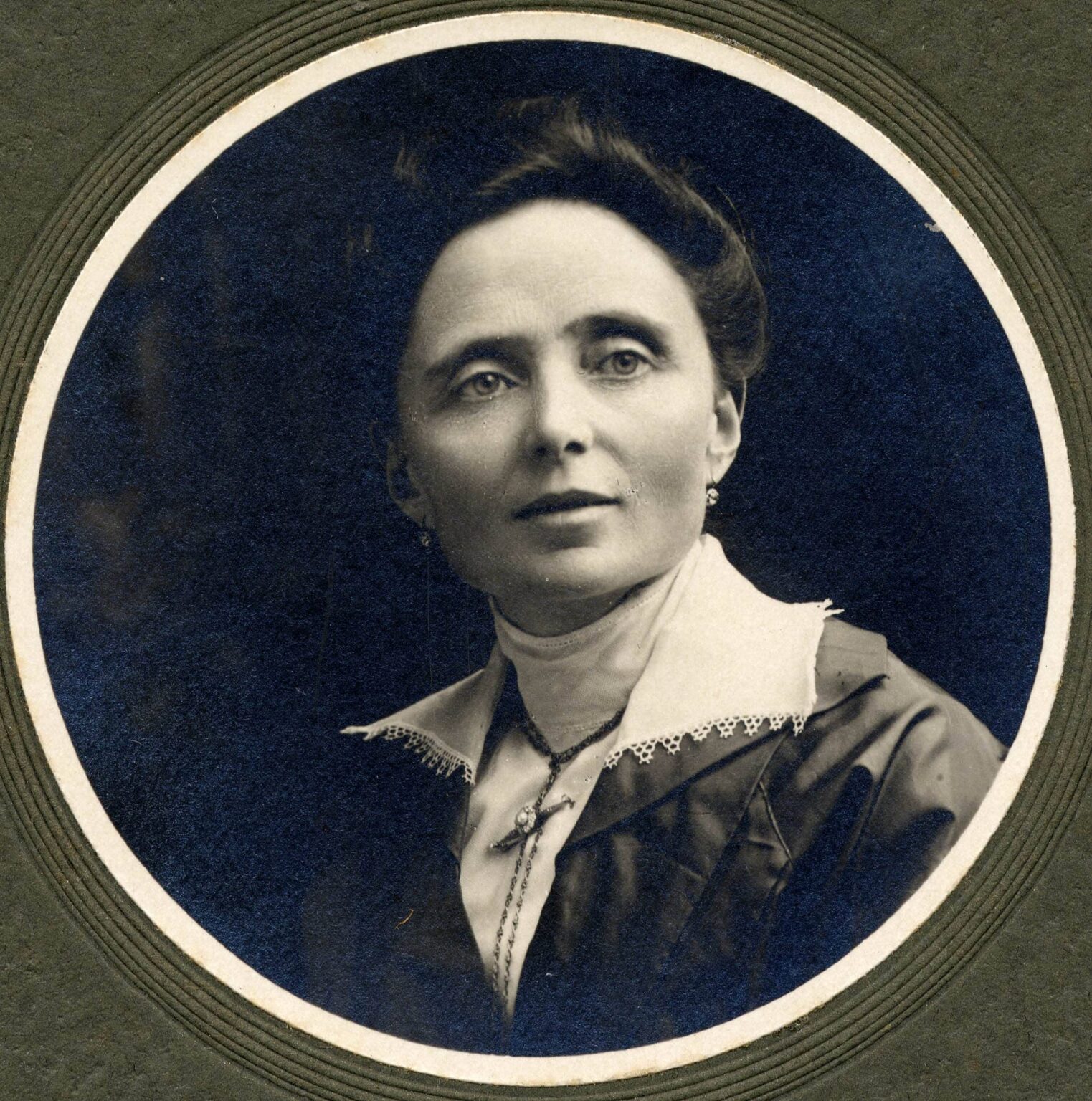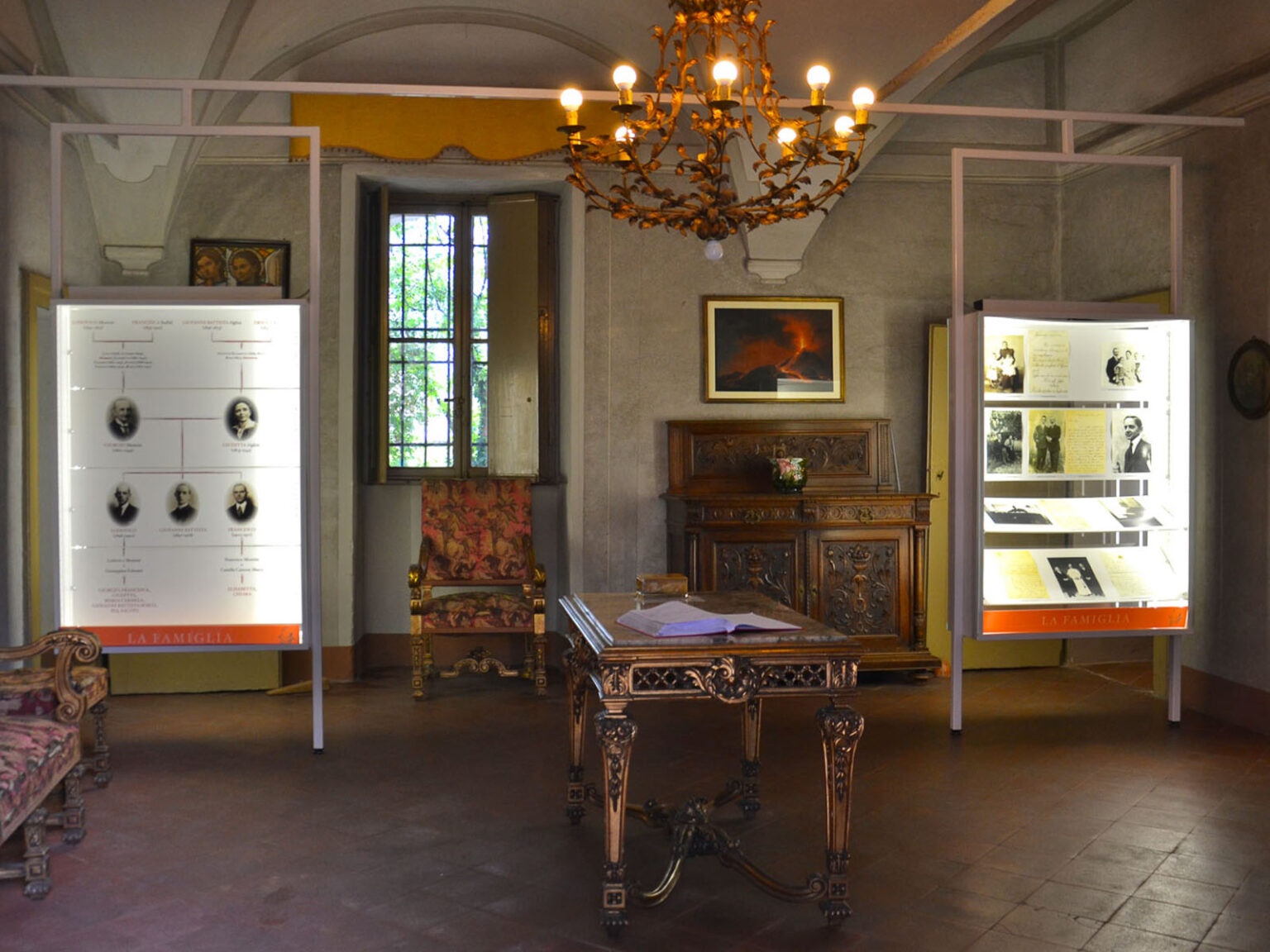
Ground floor: The Brescian roots
Entrance: The family
First panel
The first panel shows photographs of the parents and their three children.
The father Giorgio (Concesio 1860 – Brescia 1943), was a lawyer, a journalist, active in various Catholic and Civic organizations in Brescia and was a deputy of the Popular Party.
The mother Giuditta Alghisi (Verolavecchia 1874-1943), orphaned as a child, studied at a boarding school in Milan and married to Giorgio in 1895. She was Pious, helpful, charitable and was the Diocesan President of the Women’s Association of Catholic Action (1923-1931), which she organized by giving it a firm foundation and sound religious guidelines for the apostolate.
Eldest son, Lodovico (Brescia 1896 – 1990), a lawyer, was called to military service in 1916 and participated as an artillery officer in World War I, earning the Distinguished Service Cross. In 1925 he became Diocesan President of the Association of Catholic Action for men. He later collaborated with De Gasperi on the founding of the Christian Democracy and was among the founders of the Associazioni Cristiane Lavoratori Italiani (ACLI) In 1946 he was elected City Councilor in Brescia and member of the Constituent Assembly. Later, again for the DC (Democrazia Cristiana), he was elected three times Deputy and in 1963 the Senator.
His second in the family was Giovanni Battista, the future Pope Paul VI (Concesio 1897-Castelgandolfo 1978). Between 1903 and 1915 he attended Elementary School, Gymnasium, and part of high school at the Cesare Arici Boarding School, held in Brescia by the Jesuits, then completed his secondary studies at the city’s Arnaldo State High School in 1916. In the Autumn of that year, he entered the Brescia seminary, and four years later, on May 29, 1920, he was ordained a Priest, in the Cathedral from Bishop Giacinto Gaggia. After his ordination, he moved to Rome, where he initially took philosophy courses at the Pontifical Gregorian University and literature courses at the State University (Sapienza), later graduating in canon law in 1922 and in civil law in 1924. Meanwhile, following a meeting with the substitute of the Secretariat of State, Vatican, Giuseppe Pizzardo, in October 1921, he was assigned to the diplomatic service and for a few months of 1923, worked at the apostolic nunciature in Warsaw.
The third in the family, Francesco (Concesio 1900 – Brescia 1971), graduated in medicine, worked for 30 years at the Polyclinic in Brescia and held administrative positions in some of the local hospitals. He had a great love for the poor, whom he cared gratuitously.

